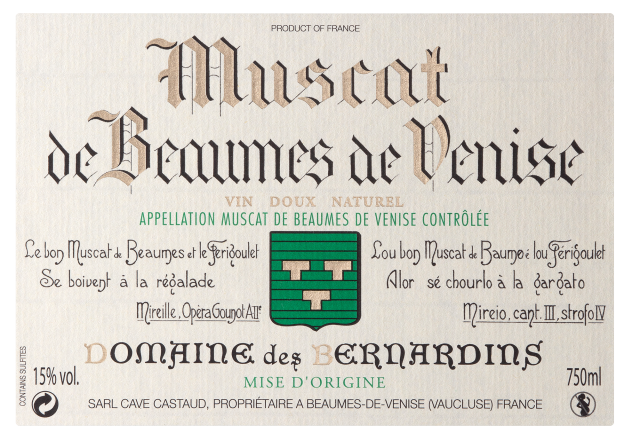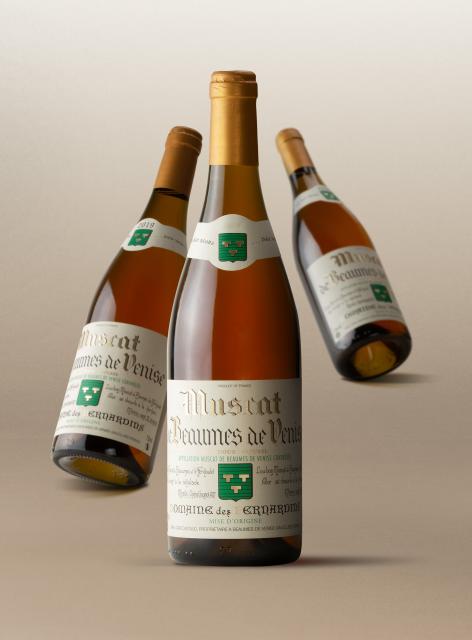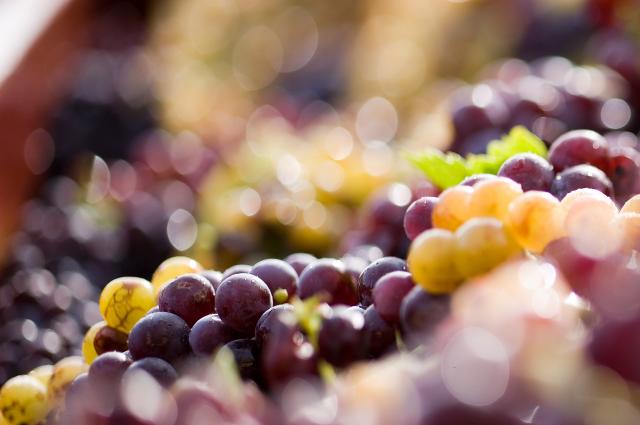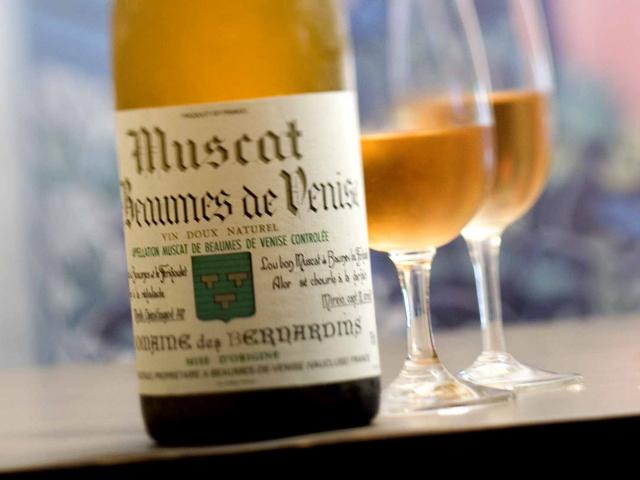Butterscotch, glazed fruits aroma. The palate is rich and runs with surprising freshness after the opening. There is a note of quince paste on the aftertaste, also herbes de Provence.
Presentation
Location
Spreads out over the south-east side of the Dentelles de Montmirail hills, in Beaumes de Venise in the southern part of the Rhone valley.
Terroir
On a poor sandy, hungry and arid soil consisting of tender limestone and gritty zones of sandy mollasse.
In the vineyard
The vineyards and their terroir are the essence of our wines. This is where everything starts and where we focus our efforts throughout the year. You can’t make great wine without great grapes.
The viticulture is essentially done by hand. Five people work full-time in the vineyards. They are supplemented by seasonal employees who work during bunch thinning and the harvest in order to bring out the very best in our vines. Working by hand and the attention each vine gets are fundamental. Pruning, de-budding, trellising, leaf removal and picking are thus carried out by hand with the utmost care.
We prepare the soil by using good old-fashioned ploughing. Organic compost is made from grape marc (the discarded stalks and skins).
We use and abide by countrywide standards for ‘sustainable agriculture’.
As a way of protecting the plants, we only use phytosanitary products when necessary and within strict guidelines by staggering the treatments appropriately, to minimise the amount of chemicals used. We prefer to use as much as possible manual and organic techniques . Leaving natural grass cover, removing buds and leaves from the vines, preserving biodiversity around the vineyard: olive, almond and cypress trees, wild rosemary and capers.
The viticulture is essentially done by hand. Five people work full-time in the vineyards. They are supplemented by seasonal employees who work during bunch thinning and the harvest in order to bring out the very best in our vines. Working by hand and the attention each vine gets are fundamental. Pruning, de-budding, trellising, leaf removal and picking are thus carried out by hand with the utmost care.
We prepare the soil by using good old-fashioned ploughing. Organic compost is made from grape marc (the discarded stalks and skins).
We use and abide by countrywide standards for ‘sustainable agriculture’.
As a way of protecting the plants, we only use phytosanitary products when necessary and within strict guidelines by staggering the treatments appropriately, to minimise the amount of chemicals used. We prefer to use as much as possible manual and organic techniques . Leaving natural grass cover, removing buds and leaves from the vines, preserving biodiversity around the vineyard: olive, almond and cypress trees, wild rosemary and capers.
Winemaking
In the spirit of respecting traditional techniques and the best elements of modern technology, cellar manager Andrew Hall and his winemaker son Romain Hall take family traditions very seriously.
When making our wines, the Muscat de Beaumes de Venise plays a central role and requires great care. After picking the grapes by hand, we press them straightaway to ferment the juice without skins. We don’t add any yeasts and keep the alcoholic fermentation in check by
temperature control. Vin Doux Naturel winemaking involves stopping fermentation to preserve the grapes’ natural sweetness. During vinification, we watch the vats day and night and add the fortifying spirit just at the right moment. At this stage, the wine’s final balance is at stake. The wine is then aged in stainless steel tanks for 6 months before bottling.
When making our wines, the Muscat de Beaumes de Venise plays a central role and requires great care. After picking the grapes by hand, we press them straightaway to ferment the juice without skins. We don’t add any yeasts and keep the alcoholic fermentation in check by
temperature control. Vin Doux Naturel winemaking involves stopping fermentation to preserve the grapes’ natural sweetness. During vinification, we watch the vats day and night and add the fortifying spirit just at the right moment. At this stage, the wine’s final balance is at stake. The wine is then aged in stainless steel tanks for 6 months before bottling.
Varietals
Muscat à petits grains blancs : 75%
Muscat à petits grains noirs : 25%
Muscat à petits grains noirs : 25%
Specifications
Alcohol content : 15 % % vol.
Production volume : 500 hL
Yield : 30 hl/ha hL/ha
Age of vines : 50 ans years old
Residual Sugar : 110 g/l g/l
Production volume : 500 hL
Yield : 30 hl/ha hL/ha
Age of vines : 50 ans years old
Residual Sugar : 110 g/l g/l
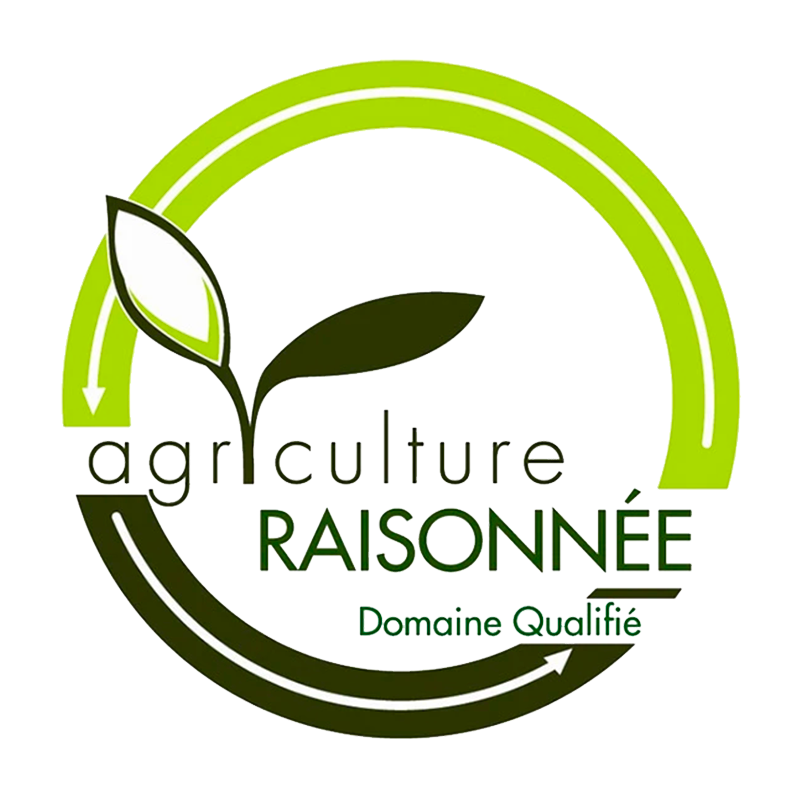
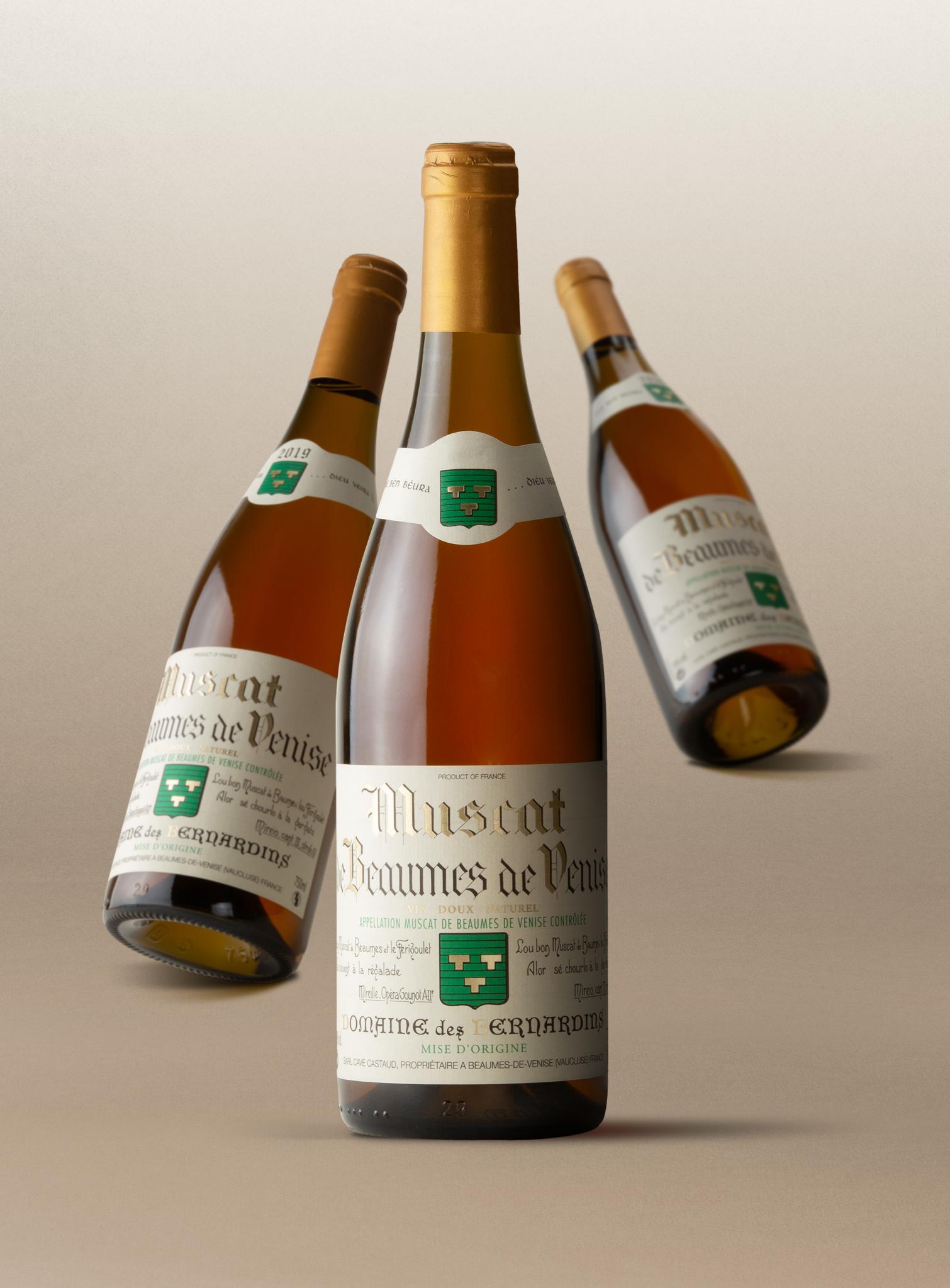
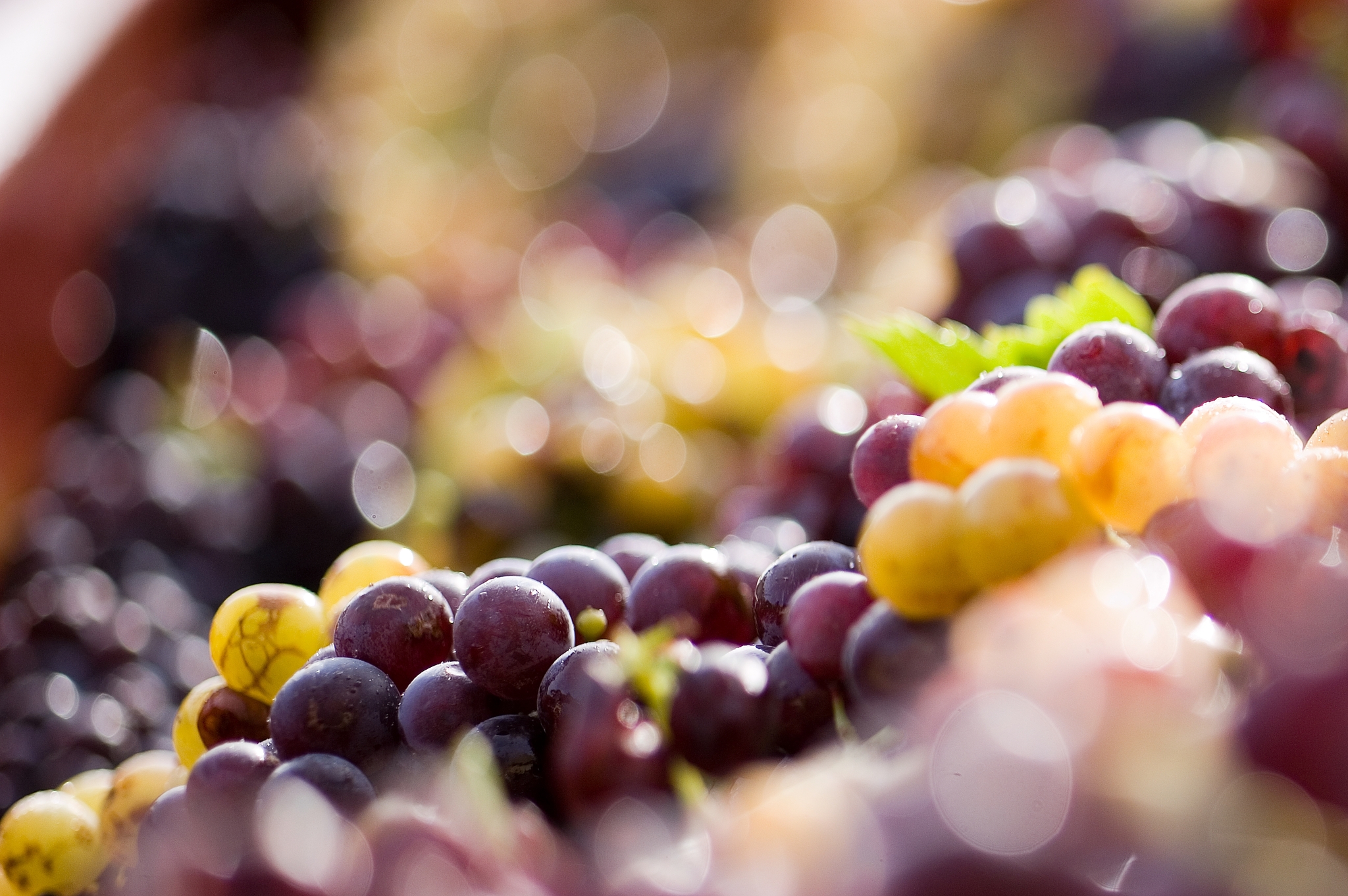
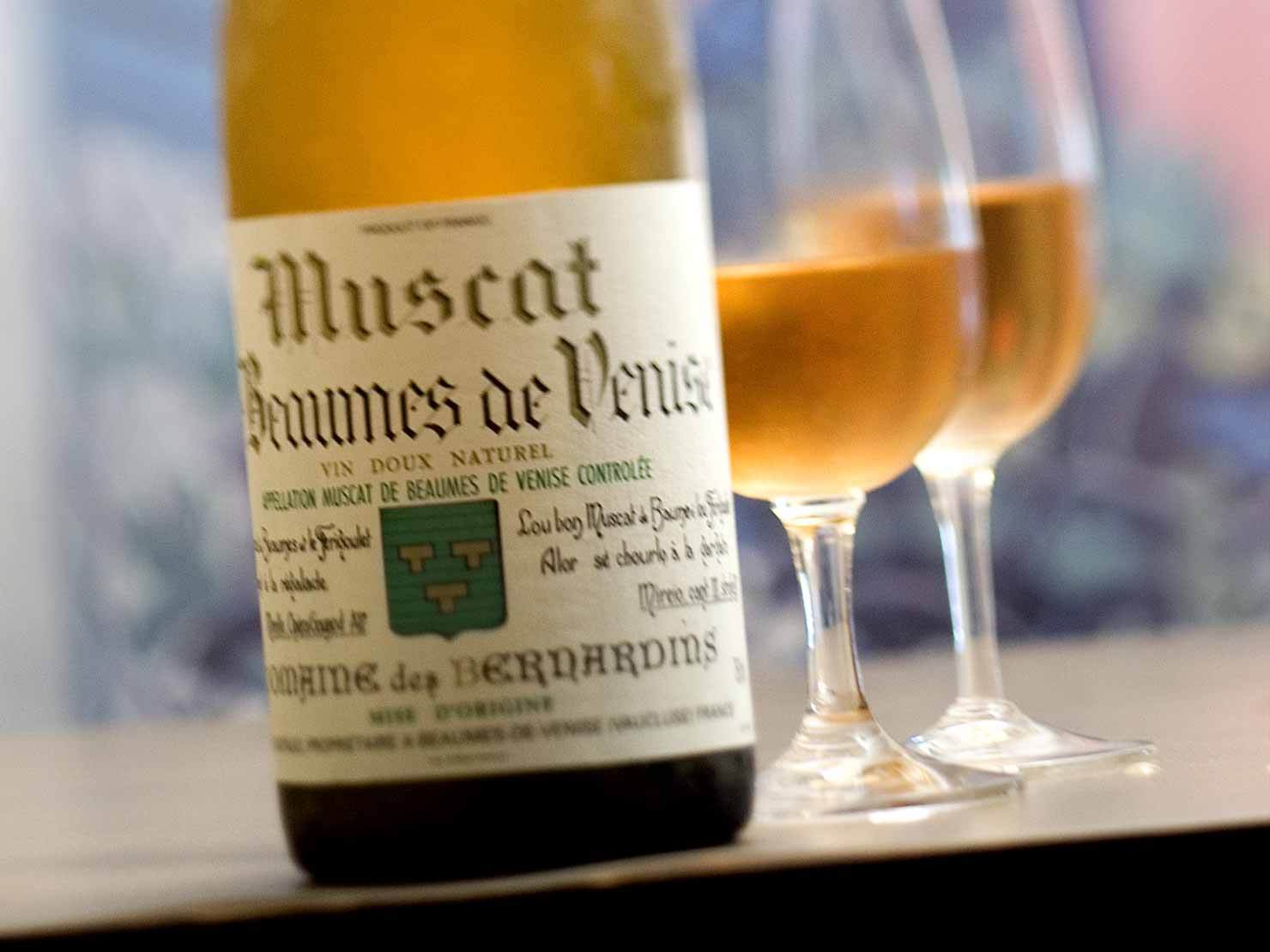
Advice
Serving
Serve at 8 ° C / Aging qualities: The Muscat becomes mellow well rounded with a copper pink robe. Its bouquet is refined with a perfect balance.
Tasting
Visual aspect : clear gold colour, slightly tilered.
Nose : fruity and delectable. Opening up on notes of apricot and very ripe pear. Floral notes.
Palate: fat an broad, highly enjoyable. We find aromas of the nose. Magnificent finish.
Nose : fruity and delectable. Opening up on notes of apricot and very ripe pear. Floral notes.
Palate: fat an broad, highly enjoyable. We find aromas of the nose. Magnificent finish.
Food pairings
Chilled as an aperitif, the Muscat is a versatile companion to many
dishes. Most expressive with foie gras and roquefort, it retains all its character served with a fruit tart, puff paestry and chocolate deserts.
dishes. Most expressive with foie gras and roquefort, it retains all its character served with a fruit tart, puff paestry and chocolate deserts.
Recipes
Moelleux au Muscat de Beaumes de Venise
Reviews
"Le Muscat de Beaumes-de-Venise 2020 reste à un niveau exceptionnel. Complexe, sur ses notes de mandarine, d'orange confite et d'abricot. La bouche gère la douceur avec brio sans jamais saturer. "
"Lovely aromas of pear, crab apple, quince and beeswax. It's full-bodied but not gloopy, generously rounded on the palate, with a lovely sense of balance and freshness to offset the measured sweetness. The tiniest touch of super-fine tannin helps to build structure and give a long, perfumed finish. Very elegant. Grown on sandy soils, fermented with natural yeasts. 110g/L residual sugar." [+]
"Ce grand classique de l'appellation est une valeur sûre incontournable. Armé de la grande générosité d'un fruit mûr à souhait, il déploie en bouche un équilibre magistral entre une eau-de-vie toujours bien intégrée et un sucre résiduel, qui, année après année, s'intégrera à merveille. On pourra le boire sur la jeunesse de son fruit, mais il serait dommage de ne pas le laisser vieillir car il gagnera tellement en complexité avec quelques années de garde ! Mettez tout ce que vous pouvez en cave et soyez patients, vous serez amplement récompensés. "

